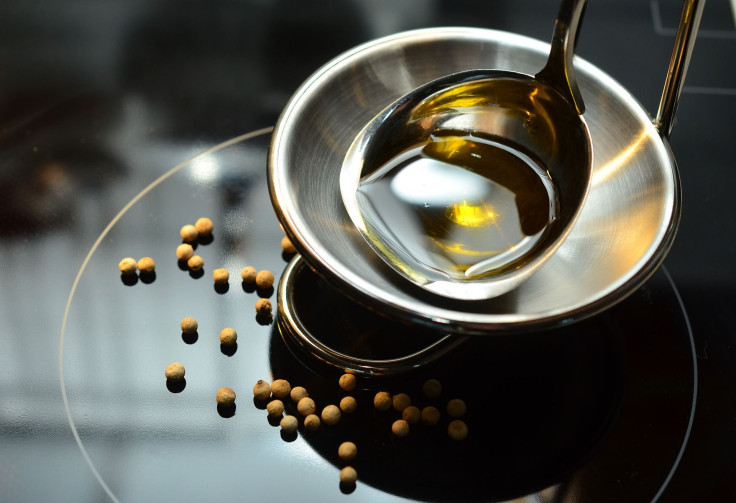Olive Oil Benefits Extend To Frying Vegetables; Enhanced Nutrients Better Than Boiling In Water

Frying is a vilified form of cooking, but when it comes to vegetables, it may make produce healthier. Researchers from the University of Granada cooked a few vegetables commonly found in the Mediterranean diet in extra virgin olive oil (EVOO) to see how it affected the various nutritional profiles. Their findings, published in the journal Food Chemistry, demonstrated the oil's ability to enhance phenols in vegetables — healthy chemicals that work to protect cells, and decrease the risk of developing cancer, diabetes, and age-related macular degeneration (vision loss).
For the study, researchers cooked cubes of potato, pumpkin, tomato, and eggplant in a variety of ways. They tried sautéing and frying vegetables in EVOO, boiling vegetables in water, and boiling them in a mixture of water and EVOO; each method was also compared to raw vegetables. Researchers also measured the moisture, fat, total number of phenols and antioxidants.
Because oil can transfer heat to the vegetables differently than water, it increased the phenol fraction, which is the chemical process of expressing phenols in foods. The oil was able to increase the amount of phenolic compounds present in the vegetables. EVOO also increased the amount of fat in vegetables compared to those cooked in water; however, increasing phenols through frying still outweighed the fat content, proving to be an overall healthier route. All cooking methods equally increased the amount of antioxidants present.
When a vegetable phenolic content was higher in raw form, EVOO enhanced the amount of phenols in the frying process, while boiling did not affect the final concentration of phenols. Researchers concluded that frying vegetables in EVOO or in a mixture of EVOO blended with water is the ideal cooking method for rendering more nutrients from the vegetable.
"We can confirm that frying is the method that produces the greatest associated increases in the phenolic fraction, which means an improvement in the cooking process, although it increases the energy density by means of the absorbed oil," said the study’s co-author Cristina Samaniego Sanchez, a professor at the University of Granada, in a press release. "We must stress that frying and sautéing conserve and enhance the phenolic composition, as the addition of EVOO improves the phenolic profile and compensates for the deficiencies of the raw food."
Source: Ramirez-Anaya JP, Samaniego-Sanchez C, Castaneda-Saucedo MC, Villalon-Mir M, and Serrana HLG. Phenols and the antioxidant capacity of Mediterranean vegetables prepared with extra virgin olive oil using different domestic cooking techniques. Food Chemistry. 2016.
Published by Medicaldaily.com



























